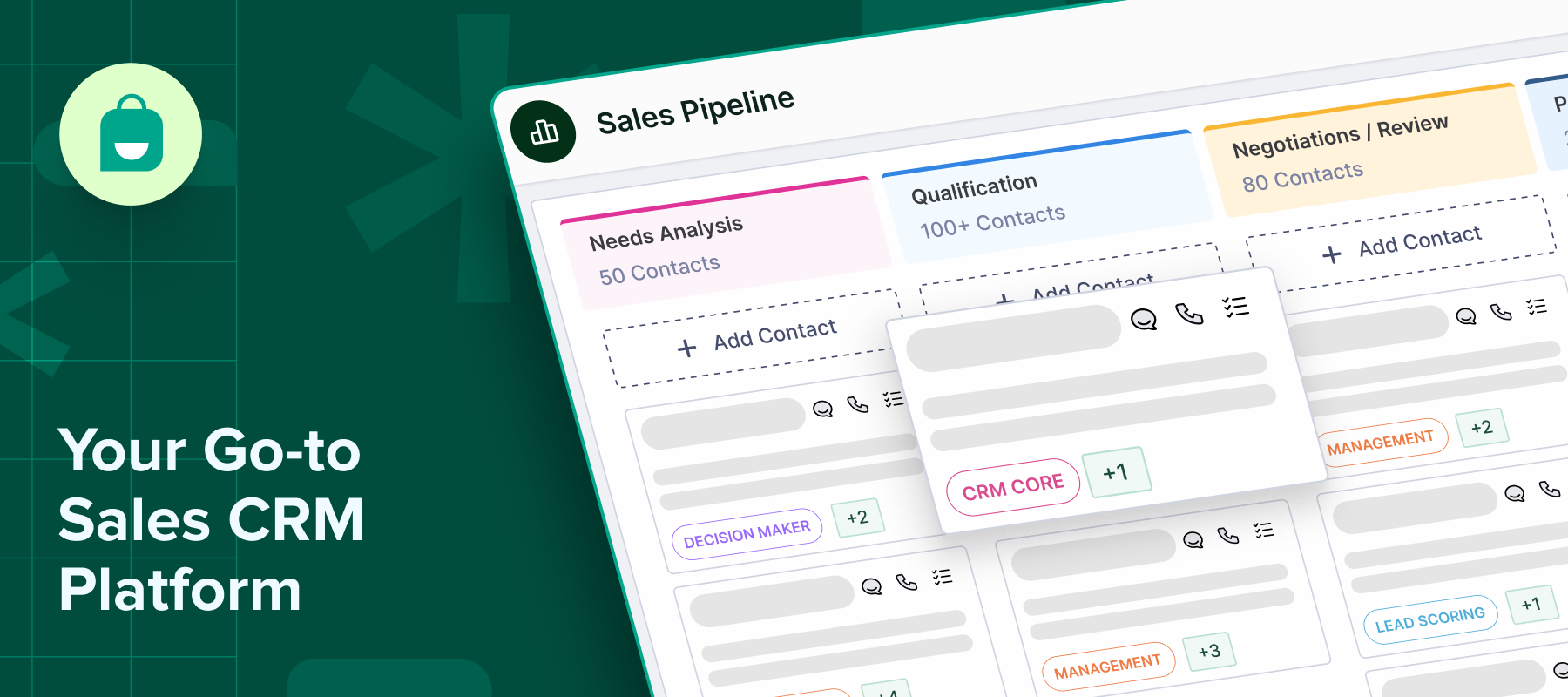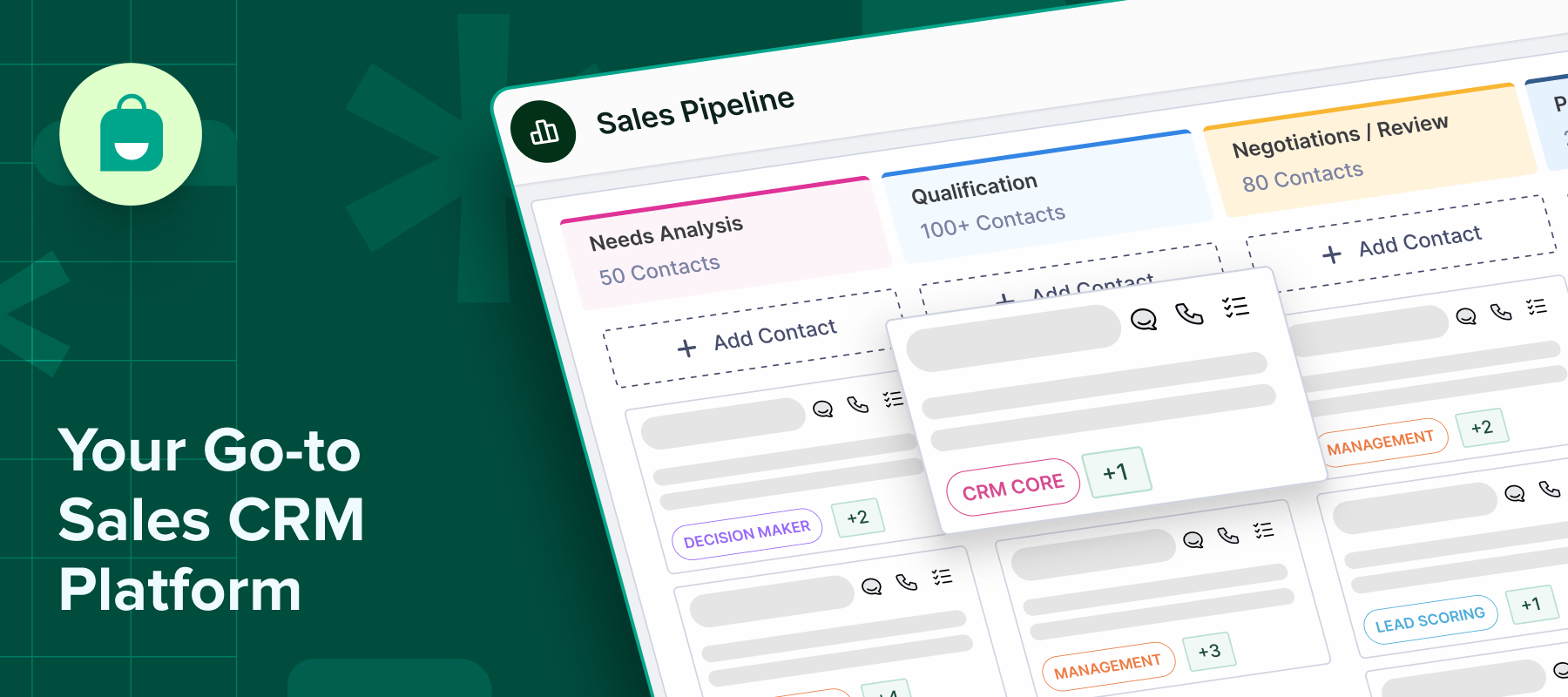If you’re running a business today, you already understand the importance of having a CRM system in place. It’s what helps you stay organized, track customer interactions, manage relationships, and ensure that no opportunity slips through the cracks.
Still, many assume that the more expensive the CRM, the better it must be, treating price as a measure of performance, which often leads to unnecessary complexity and cost. We’re here to debunk that opinion!
The True Definition of a "Best" CRM
A CRM, or Customer Relationship Management system, is a tool designed to help businesses manage and streamline their interactions with current and potential customers. It acts as a central hub where teams can access customer information, track communication history, manage leads, automate follow-ups, and monitor the entire customer journey.
What You Actually Pay For in Expensive CRMs
Here’s what you actually pay for in expensive CRMs:
-Advanced automation and AI-driven features: Expensive CRMs offer advanced automation features, including AI-based lead scoring, follow-up emails, sales forecasting, predictive suggestions, and behavior-triggered workflows.
-Custom integrations and extensive API access: Enables the CRM to connect with a wide range of external tools and platforms through custom-built integrations and open APIs, ensuring seamless data flow.
-Dedicated account managers and premium support: You get assigned account managers for direct communication, along with faster response times, priority issue resolution, and hands-on onboarding assistance.
-Enterprise-grade security and compliance: Includes features like advanced user permissions, encryption, audit logs, and compliance with regulations such as GDPR, HIPAA, and SOC 2.
-Complex reporting and analytics dashboards: These offer customizable dashboards, in-depth reporting, real-time analytics, and multi-dimensional data views across sales, marketing, and support functions.
When Free or Affordable CRMs Deliver Better ROI
Here’s when free or affordable CRMs deliver better ROI, and why they might be a smarter starting point than you think:
Lower total cost of ownership with essential features covered
Affordable CRMs focus on the essentials like contact management, deal tracking, basic automation, and integrations with everyday tools. You get what you need to stay organized and close deals, without paying for features you won’t use.
Easier setup and faster time-to-value
Budget-friendly CRMs are quick to set up, with user-friendly interfaces that don’t require IT support or weeks of configuration. You can get started fast and see results sooner, without a drawn-out onboarding process.
Less training required for small teams
These tools skip the clutter and focus on intuitive design. Small teams can learn them quickly, cutting down on training time and jumping straight into managing leads and deals.
Better suited for startups and SMBs with limited sales complexity
If your sales process is straightforward, such as managing leads, tracking conversations, and progressing deals through a simple pipeline, affordable CRMs offer just the right features without unnecessary extras.
Can be upgraded later as needs evolve
Most low-cost CRMs offer scalable plans. You can start small and upgrade when needed, adding users, features, or integrations as your business grows, without having to switch platforms.
Hidden Costs in High-End CRM Platforms
Here are some hidden costs in high-end CRM platforms:
-Expensive onboarding and implementation services: Setup often requires paid support, consultants, or onboarding packages that add to the initial cost.
-Additional fees for integrations, users, or storage: Many platforms charge extra for connecting tools, adding users, or increasing data limits, costs that can add up quickly.
-Long-term contracts or tiered feature restrictions: You may be locked into annual plans or forced to upgrade tiers just to access basic features.
-Ongoing cost of administrator or developer support: Managing a complex CRM may require hiring a specialist or developer, especially for custom setups.
-Opportunity cost from underutilized advanced features: Paying for features you rarely use ties up budget and limits investment in tools that support your workflow.
Comparing Value, Not Just Price
Here’s what you should look for instead of just the price:
1. Feature-to-need match
A CRM should align closely with the way your team works. When the features directly support your daily tasks and sales process, the tool becomes an asset rather than a distraction.
2. User adoption and ease of use across your team
Value depends heavily on how well your team adopts and utilizes the system. A CRM that’s easy to navigate and fits naturally into workflows ensures better usage, fewer errors, and more consistent data.
3. Support availability and responsiveness
Reliable, accessible support adds operational value. Whether it’s resolving issues quickly or assisting with system changes, strong support reduces downtime and keeps teams moving forward.
4. Performance improvements in lead tracking and conversion rates
A CRM should contribute to measurable gains, like better visibility into the pipeline, clearer tracking of prospects, faster response times, and improved conversion rates across the board.
5. Ability to support long-term business goals
The platform should scale with your business as it grows. A CRM that adapts to evolving team structures, customer segments, and workflows helps ensure long-term continuity and value.
Signs You Don’t Need an Expensive CRM Yet
Here are some signs that you don’t need a high-cost CRM for your business yet:
-Small sales team with basic pipeline needs
If your team is small and managing a straightforward sales pipeline, a lightweight CRM with core features is usually more than enough to stay organized and effective.
-Limited product or service complexity
When you’re selling a single product or a simple set of services, there’s less need for complex workflows, segmentation, or automation, keeping your CRM needs simple.
-Low volume of deals or customer interactions
A low deal volume means fewer contacts to manage and track, making it easier to operate with a basic CRM that handles essentials like lead tracking and follow-ups.
-No custom reporting or automation requirements
If you’re not relying on detailed analytics or automated workflows, there’s little value in paying for advanced features you won’t use.
-Already achieving sales goals with a free or low-cost CRM
If your current system supports your targets and nothing’s broken, there’s no reason to upgrade. Stick with what works until your needs grow.
When It Makes Sense to Upgrade to a Paid/Enterprise CRM
Some business stages demand more from your CRM. Here’s when it makes sense to invest in a more advanced solution:
-Rapid team or customer base growth: As your team or customer list expands rapidly, managing leads, tasks, and handoffs without a scalable CRM becomes increasingly challenging.
-Need for custom workflows, roles, or automation: If your processes are becoming more specific and manual tasks are slowing things down, you’ll need a CRM that supports customization and automation.
-Expanding into global markets or multi-channel sales: Operating across countries or multiple sales channels often requires advanced tools for localization, segmentation, and coordination.
-Need for deeper data insights or forecasting tools: If you’re making decisions based on guesswork instead of data, it’s time for a CRM that offers advanced reporting and forecasting.
-Integrating CRM with marketing, support, or ERP platforms: When your business operates across multiple systems, a CRM that integrates all these platforms into a single view becomes essential.
Conclusion
Choosing the right CRM isn’t about finding the most expensive option, it’s about finding the one that fits your business today, with room to grow tomorrow. Many teams overspend chasing features they’ll never use, while leaner tools quietly deliver better results.
If your sales process is simple, your team is small, or you’re still scaling up, a high-priced CRM may not be the right investment.
Looking for a CRM that covers what you need without overcomplicating things. Interakt might be the right place to start.


